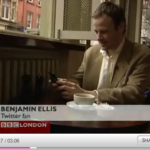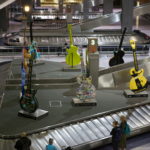 It seems that BBC Micro retrospectives are sweeping the web.
It seems that BBC Micro retrospectives are sweeping the web.
The BBC ran a story: Beeb creators reunite at museum on the recent meeting at the science museum. There is a great video embedded in the story, showing the BBC Micro loading programs from a cassette tape. Ah, those were the days, waiting fifteen minutes and jigging with wires just to try and get a game to load.
The Guardian also covered the BBC Micro story, noting that the team went on to develop the ARM processor, which powers most mobile devices today. The successor, the Archimedes was never quite as successful, and RM (Research Machines) took over the lead as schools moved to IBM compatible PCs and the national curriculum pushed IT skills into the main stream, just a few years after I did my PGCE.
The BBC wasn’t my first computer, although it was my first introduction to electronic music and to computer networking. Just seeing the Owl logo again brought memories flooding back! It is amazing to think what we did with 16k of memory and a 6502 processor running at 2MHz! The ZX Spectrum may have been cheap, but the BBC Micro oozed quality and it was many years later that I finally traded in my BBC (by then a BBC Master) for an Amiga, but that is another story.
The Science Museum is planning an exhibition about the BBC Micro and its legacy in 2009, and Dr Tilly Blyth is writing a book about it (Tilly’s blog here, I think).
I hope they cover something about the Music 500 and M,usic 5000. I still miss the ‘Ample’ music programming language, and haven’t seen an equivalent since. Some of the e-music pioneers are still around and making music, for example Dave Morley. I worked with Pear Tree Computers for a while, demonstrating that amazing technology. I wish I had tools to write music like that again.





